Rough skin on a baby. Newborn's skin is peeling
Young mothers are very careful and sensitive to everything that concerns their child. Sometimes a newborn's skin will peel insignificantly, sometimes very strongly...
Why does a newborn's skin peel?
A man who had only recently been born, as if from another planet. It’s true: he lived in a completely different environment, and now he is gradually adapting to the changed conditions.
Therefore, experts call this a physiological process, which Post-term babies are most susceptible. Their skin is more prone to irritation, diaper rash, cracking and peeling on the face, arms, legs, and tummy.
This usually occurs in the first week of life. Over time, the peeling goes away on its own.
If the skin does not stop peeling during the first months, there is a possibility that it is atopic dermatitis.
The disease is genetically determined and can manifest itself to varying degrees. The reasons and “triggers” for this condition are different: a reaction to the introduction of bananas into the diet of a nursing mother, fabric softener, poor quality of tap water.
When a newborn's scalp is flaky, it may be due to seborrheic dermatitis.
There is no need to be scared: this happens to almost all children and goes away before they are a year old. This condition is associated with excess fat, which is produced by the sebaceous glands of the little man. This is a physiological feature and does not require serious drug therapy.
“First aid” for peeling baby skin
Do any of the following using clean cotton swabs.
- Lubricate generously baby cream, special oil for newborns.
- Boil sunflower oil in a clean container, let cool to a warm temperature, rub into delicate skin with massage movements.
- Other sterilized oils are also suitable for these purposes: olive, vaseline, peach.
How to properly care for baby's skin?
A newborn's skin peels, usually due to improper... How should it be done? Wipe with a cotton swab lubricated in oil all folds of the skin and areas of the body:
- neck fold,
- behind the ears,
- between the fingers,
- palms - this is where strings and fibers can remain, which can cause diaper rash, so you need to carefully remove everything,
- elbow bends,
- armpits,
- legs - from the toes and further up - all folds, including the popliteal ones,
- groin area,
- the fold between the buttocks.
Website website draws your attention: for each zone use a new cotton pad, you need to do all this after each bath for up to three months. If everything is fine with the skin, then after three months you can forget about these manipulations.
However, this is not all. If your newborn's skin is peeling, you need to take into account all possible factors.
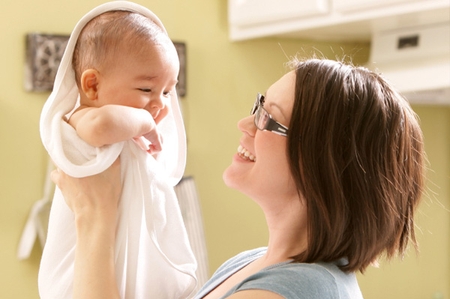
- When choosing washing powders, try to avoid those that contain chlorine and strong fragrances.
- When washing your baby’s clothes and all things that the baby’s delicate skin comes into contact with, do not use rinse aids.
- Nursing mothers should carefully watch what they eat. After all, this is exactly what happens in children's body. A newborn baby's skin peels sometimes due to whole goat or cow's milk, chocolates, sweet buns, dishes with preservatives and aromatic additives.
- For kids on artificial feeding There is no need to give tomatoes, carrots, red berries and other vegetables and fruits of this shade.
- Buy clothes exclusively from natural materials. No synthetics!
- Instead of soap when bathing, use special detergents for children's delicate skin. Soap makes a newborn's skin peel.
- Install a filter on the faucet so that tap water is cleared of chlorine and other impurities that delicate skin may react to.
- When you have given your baby a bath, carefully wrap him in a soft towel. It must be light. The fact is that dyes on the skin can cause irritation and peeling. It is also important that the towel is personal and always stored separately from adult items. And if you have pets, try to prevent them from coming into contact with children's things. Some cats have a habit of sleeping in the wardrobe. Wean your pet off this immediately.
- There is no need to rub vigorously with a towel after a bath so as not to injure delicate skin. Just blot gently.
- Did you bathe the baby? Apply baby cream following the recommendations mentioned above.
If you notice cracks in the skin or severe peeling, it is best to consult a pediatrician. Children's doctor must find out why the newborn’s skin is peeling and whether there are any serious problems.
When a small miracle appears in a family, in addition to joy and happiness, additional worries arise. Parents try in every possible way to protect their baby from illnesses and illnesses. Some seemingly natural phenomena can cause panic in a new mother. One of them is peeling of the skin in a newborn. Most often, this is a natural process that does not pose a threat to the baby. However, in any case, it needs to be monitored and certain measures taken, because sometimes such a phenomenon can be a sign of illness.
The main causes of peeling skin in a newborn
If a newly born baby's skin peels off, don't be scared and immediately run to the doctor in a panic. First, try to figure out the situation yourself and find possible reason the occurrence of this phenomenon. Most often it lies in physiological characteristics formation of the child's body.
This is why your baby's skin peels:
- Adaptation to new conditions - the protective film that envelops the baby in the womb gradually peels off the skin during the first week of his life. A change in environment (after all, at birth the environment changes from water to air) causes certain changes in the baby’s body.
- Underdevelopment of the sebaceous glands. Over time, their work will improve, and natural hydration of the baby's skin will be ensured.
- Failure to change diapers in a timely manner will result in areas of irritation appearing on the skin that may begin to peel.
- Cold wind - not only the skin of a baby, but also adults, reacts to such atmospheric phenomena with peeling.
- Sunburn – long-term exposure ultraviolet rays. Even being in the shade during the day during the hot season, a child can get a burn.
- Incorrectly selected hygiene products: soap, shampoo, gel, creams. You need to monitor the reaction to any new product and if it is not suitable, immediately exclude it from hygiene products.
- Allergic reaction to mother's milk, care products, clothes, toys, bedding, etc.
- Frequent bathing – prolonged contact with water dries out the skin.
- Adding potassium permanganate to the bath. This is usually done to help the baby's belly button heal faster. However, manganese dries out the baby's skin.
- Dry indoor air. If the humidity is insufficient, discomfort is felt, the child is thirsty, which will certainly affect the skin.
What to do if your baby's skin peels?
- To prevent your child from peeling skin, as well as to prevent the occurrence of wounds and irritation, simple procedures must be carried out regularly.
- Humidify the indoor air, especially near your baby's crib.
- Change your diaper on time and use care products. It is best to use diapers instead of diapers.
- You should not use potassium permanganate while bathing.
- Choose shampoo and baby soap that won't irritate your baby's skin. You shouldn’t use them every bath; it’s better to do it every other day.
- Every time after bathing, lubricate your baby's skin with baby oil or moisturizing lotion.
- Rub warm olive oil over the folds of your child's legs and arms.
- During walks, provide your baby with reliable protection from wind and frost in winter, as well as from direct sunlight in summer, and even from scattered sunlight during the day. Can be used cosmetics with UV protection.
Useful video:
If you suspect the development of any disease or pronounced peeling, you should contact your pediatrician for help. In most cases, newborn skin stops peeling after a few months. This means that another stage of adaptation to the outside world has been completed.
For parents, the birth of a baby is a real happiness, but in addition to joy, additional worries arise. Children develop many diseases after birth. Overcoming all illnesses, the body strengthens and prepares to fight upcoming difficulties.
One of these diseases is peeling skin on a newborn’s body. Almost all babies are susceptible to this disease.
Peeling of a newborn's skin occurs when it comes into contact with a new environment and can spread from the head to the heels. The skin of a baby is very delicate, thin and requires proper care.
Causes of peeling skin
In a newborn, peeling skin occurs for various reasons. More often observed in post-term infants. In the first days after the birth of a baby, his living conditions change, adaptation to the external environment from which he was protected in the womb. Usually the disease goes away on its own within 1 to 2 weeks. Peeling on the body of a newborn occurs due to disruption of the natural processes of keratinization.
If excessive peeling of the skin in a baby appears after two weeks, then the reasons are:
- Dry air. In the baby's room, the humidity should be 50 - 60%. Due to dry air, the mucous membranes dry out. Nasal breathing is impaired
- Improper skin care. When frequently bathing a child with special shampoo, soap, potassium permanganate, the skin loses its natural lubrication and becomes dry.
- Allergic reaction. Redness, rashes, itching appear, and crusts form. The reason is the allergenic food that the mother ate (citrus fruits, red berries, canned food, sweets, chocolate). Perhaps the washing powder or conditioner is not suitable
- Reaction to the weather. Exposure to cold air, direct sunlight, frost
- Things and bedding should be made from natural fabrics. Synthetic underwear causes skin irritation
- Lack of vitamins, microelements, stress, dehydration
- Pustular diseases, scarlet fever, various infections
- Kidney or intestinal diseases.
Peeling of the scalp in infants
Peeling of the scalp in a baby is a natural process of adaptation to a new environment. Occurs due to seborrheic dermatitis. Appears at the age of 2 months and lasts up to a year. Dermatitis is associated with the immaturity of sweat and other glands, sebum is abundantly secreted, and crusts form. Causes of dermatitis:
- Yeast fungus living on a child's head
- Allergies to food and detergents
- Hormonal fluctuations that occur during breastfeeding
- Increased activity of the sebaceous glands
- Genetic predisposition of the child
- Increased room temperature.
Atopic dermatitis may occur against the background of seborrheic dermatitis. The cheeks, neck, and face are affected. The rash may spread throughout the body. Peeling of the scalp in a child can persist for quite a long time if there is a pathology of the fat and sweat glands.
Peeling treatment and prevention
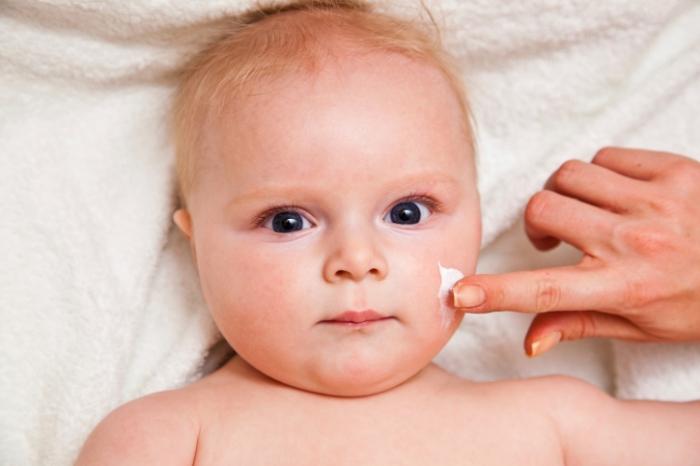
There are precautions to prevent your newborn from developing skin peeling. Some actions can mitigate this phenomenon, but it is impossible to completely avoid flaking on the baby’s body. In principle, it does not cause any inconvenience for the child.
Actions must be taken to moisturize and soften the baby's skin. Before bathing, the baby's head should be lubricated with baby oil, Vaseline, salicylic ointment and wash off after 15 minutes. Then lather with baby soap and comb out with a brush.
If a newborn baby has allergy symptoms, then the mother should control her diet. If the baby is artificial, you need to change the formula.
For washing, choose a hypoallergenic powder, without fragrances, chlorine, or dyes. When washing, do not mix children's and adult clothes.
Bath your newborn once a day. Potassium permanganate should not be added to water, as it dries. The water should be warm, no more than 37°. After bathing, pat your skin dry with a towel rather than rubbing it. Grease with wheat germ oil, almond, olive, peach oil.
The baby's room should be ventilated and moistened daily. Dry air has a negative effect on a baby's skin. When walking in summer, it is necessary to protect the baby from direct sunlight, and in winter from cold.
The “La-Cri” cream, consisting of medicinal plants, ointments based on lanolin. Peeling skin is normal for a newborn. There is no need to worry too much. The main thing is to follow simple hygiene rules and make sure that your baby’s skin does not dry out.
After a child is born, parents are faced with a huge number of issues related to caring for newborns. After all, in fact, babies are not born pink, plump and smooth, but wrinkled, with a purple skin tint and swollen eyes. And a newborn’s skin almost always peels off. The reasons for a baby may be different.
Getting used to the outside world
The child's skin adapts to new conditions. This is the most common reason why newborns have peeling skin. After all, in the mother’s womb it was dark, warm and humid, and the baby’s skin was protected by a special vernix lubricant. And now she needs to adapt to contact with dry air, water, and clothing. She needs to learn to hydrate and renew herself in new conditions. It must be remembered that if there is no redness or swelling on the skin, and the child himself feels well, then it is not at all scary that the newborn’s skin will peel off. Most likely, this peeling will go away on its own. You just need to follow basic hygiene rules for babies.
Dry air
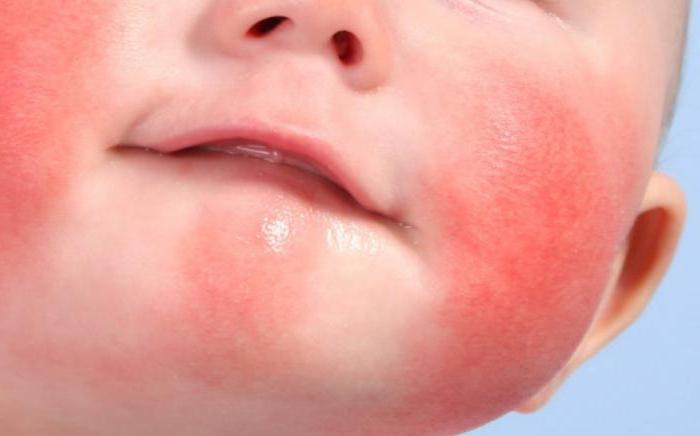
A child's skin may peel due to excessively dry air in the room. This most often happens during the heating season, when the air in apartments is completely dried by radiators and humidifiers are not used. You need to know that in order for all systems of a newborn’s body to function normally, the humidity level in the room where he sleeps must be from 50 to 70 percent. It is necessary to humidify the air to not only avoid flaking of the skin, but also drying out the mucous membrane in the nose. This may lead to breathing problems. If there is no way to install a humidifier, and the newborn’s skin is peeling off, then wet cleaning of the room should be carried out regularly. You can place dishes with water around the room and hang wet towels on the radiators. As the air evaporates, it will become humidified.
Improper care
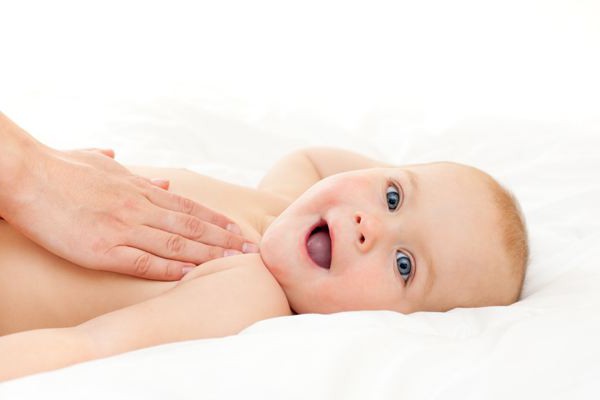
Very often the skin of a newborn peels off due to the fact that it is not properly cared for. Many parents add a solution of potassium permanganate to the water when bathing their baby. But it dries out the skin. Baths with potassium permanganate should only be used for special indications. And so, it is better to bathe the baby in ordinary water, which can be pre-boiled. But no supplements are needed. You should try not to use shampoo and soap more than once a week. You also need to constantly monitor the reaction of the baby’s skin to the use of creams, shampoos, oils, gels and other cosmetics. The skin of a newborn will peel due to an allergy to these hygiene products. It is quite possible that you will need to change the means used or select them individually, trying different options. You need to buy cosmetics from trusted places and choose only brands that are trustworthy and have good reviews.
Peeling of the head
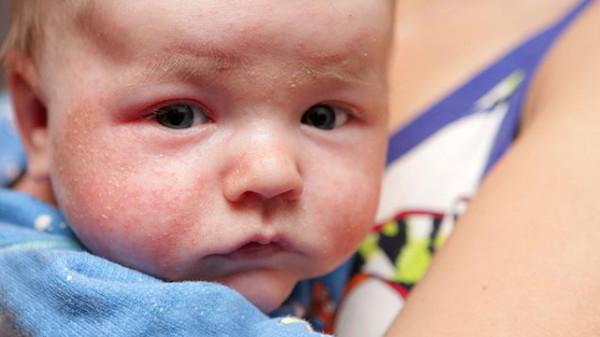
If a newborn's scalp is peeling, this is quite natural. This phenomenon is provoked by the active secretion of fat. But the cause may also be seborrheic dermatitis, which usually occurs by the age of two months. It is necessary to visit a pediatrician who will tell you how to treat the skin. Sometimes you can hear advice that you don’t need to pay attention to peeling, since it goes away by the age of one year. Some people advise steaming or softening the crusts with oil, and then combing them out when bathing.
Exposure to natural phenomena
On the face, the skin in children peels off as a result of a reaction to weathering and cold, or to sun exposure. Why do newborns have peeling skin on their hands? For the same reasons. To prevent peeling, during walks you need to protect your baby from direct sunlight and wind, and before walking in cold weather, apply a special cream to the skin half an hour before going out.
Allergy to food
Very common in newborns due to an allergic reaction to food. If the child is currently breastfeeding, then it is likely that he may be allergic to some product consumed by the mother. If artificial feeding, a reaction may occur to the formula. When the skin peels off on the arms, legs, head and body. In this case, various rashes may appear, which are accompanied by burning and itching.
and clothes
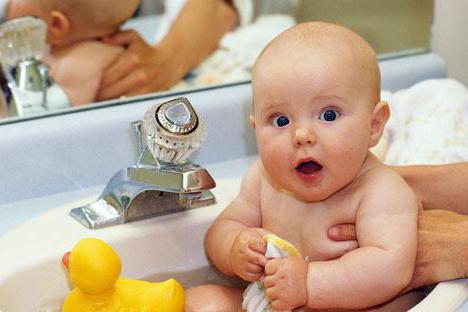
If excluded allergic reaction on food, as well as cosmetics, then perhaps the skin is peeling due to washing powder or rinse aid. In such a situation, it is necessary to replace the products used with others that do not cause allergies.
The material from which clothing is made, harmful dyes and unnatural fabrics can also cause itching and allergies. Because of this, the skin in the groin peels off. For a newborn, it is very delicate, so you should pay attention to the composition of clothing and choose only natural fabrics.
Other reasons
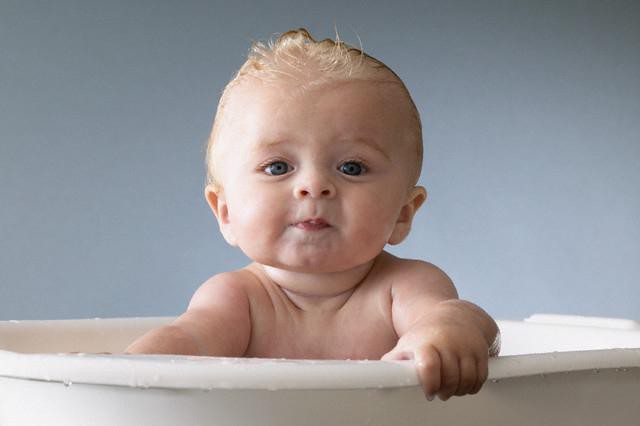 There are many other causes in a baby. Only a doctor can determine them accurately. He will prescribe the correct comprehensive treatment if necessary. There are problems that require specialist intervention. These include: scabies, fungus, mites, genetic problems, ringworm. Self-treatment can only worsen the situation, and valuable time will be lost.
There are many other causes in a baby. Only a doctor can determine them accurately. He will prescribe the correct comprehensive treatment if necessary. There are problems that require specialist intervention. These include: scabies, fungus, mites, genetic problems, ringworm. Self-treatment can only worsen the situation, and valuable time will be lost.
Preventing skin problems in babies
- There is no need to bathe your newborn more than once a day. Otherwise, the skin becomes dry.
- After bathing, do not rub the baby’s skin, but gently blot it.
- After swimming it is necessary to apply moisturizers.
- You can replace cosmetics for children with wheat germ, peach or olive oil. You need to choose something to which your child will not have an allergic reaction.
- In summer you need to use children's sunscreens.
- It is necessary to change diapers often, and also allow the baby’s skin to “breathe”, leaving him without them while awake.
- Do not use moisturizers just before going outside.
- The air in the room needs to be humidified.
- There is no need to use cosmetics that contain lanolin. It is a very strong allergen.
- A nursing mother should monitor her diet and not eat foods that may cause allergies.
What other skin problems do newborns have?
1) Redness may appear on the baby’s body after passing through the birth canal. Redness also causes the blood supply system to adapt to new conditions. If nothing bothers the baby, then no special care is needed, and everything will go away in a few days.
2) White spots may appear on a newborn's face a couple of weeks after birth. They go away in a month. The reason for their occurrence lies in the mother’s hormones, which after childbirth are still in the baby’s blood.
3) Yellowness of the skin in newborns is physiological jaundice, which appears on the second or third day after birth and disappears completely after a couple of weeks.
4) Marbled skin is when visible blood vessels. This occurs due to an incompletely formed autonomic nervous system.
5) In the first few days after birth, the skin on the hands and feet may have a bluish tint. This is normal. Within a few days, blood flow returns to normal. Until this moment, the newborn needs to wear socks or overalls that cover his legs so that he does not freeze.
Young parents are incredibly sensitive and careful about everything that concerns their newborn. The baby seems to them fragile and valuable, like an old Chinese vase from the Ming era, and accordingly it’s scary to even breathe on it.
And as soon as the baby sneezes or a small spot appears on the delicate skin, the parents are overcome by a panic attack. What can we say when a child who is not even a month old begins to peel off the skin on his head or all over his body.
Why does a newborn's skin peel?
Before birth, the baby's body is covered with a natural bactericidal lubricant that protects the skin from maceration. After birth, some of the lubricant is washed off, some is absorbed, and the skin is left face to face with a new unfamiliar environment, which, due to poor hydration, can be quite aggressive.
If peeling occurs in the first week of life, then most likely the reason is insufficient moisture and it will go away on its own over time. But it happens that the peeling does not go away, but, on the contrary, becomes more severe. Then it is worth assuming that the baby is susceptible to atopic dermatitis.
This genetic disease is passed on from one generation to the next. And the reasons for the manifestation of the disease in the active stage can be completely different. Perhaps the mother has introduced bananas into her diet, or perhaps fabric softener or tap water is affecting the baby’s skin.
If a newborn's scalp is peeling, the cause may lie in another disease - seborrheic dermatitis. Despite the name, it is not as scary as it seems and most newborns are susceptible to it. Usually, dermatitis goes away on its own by the age of one year and cannot be treated with medication. This dermatitis is associated with excess sebum, which is produced in excess by the sebaceous glands.
What to do if your newborn has peeling skin
Naturally, a caring and loving mother will not sit quietly if her baby’s skin is peeling. And that's right! To alleviate your baby’s condition, perform one of the following procedures 1-2 times a day. Use a cotton swab for this.
So:
- Lubricate the peeling area with baby cream or oil intended strictly for newborns;
- Sunflower or olive oil is boiled and, while warm, rubbed into the damaged areas with gentle movements.
newborn skin care?

It happens that a newborn's skin peels due to improper care. Therefore, we learn how to properly care for the baby. During the first three months of the baby’s life, immediately after bathing, you need to treat numerous folds on the child’s body with a cotton swab dipped in oil. For each part of the body, you should take a new tampon. In this way we will protect the newborn from the appearance of diaper rash and peeling.
If after the child is three months old and everything is in order with his skin, then you can forget about these manipulations with a clear conscience.
With the birth of your baby, you should take a closer look at the composition of the washing powder. Do not wash baby clothes with powder that contains chlorine, rinse aid or strong fragrances.
With breast milk, not only nutrients enter the baby’s body, but also possible allergens. Therefore, nursing mothers should carefully monitor their diet and adhere to a certain diet.
A newborn baby's skin may peel if the mother drinks whole cow's or goat's milk, indulges in chocolate or sweet buns, and also eats foods containing preservatives or flavoring additives.
If your baby is bottle-fed and you gradually begin to introduce vegetables and fruits into his diet, then you should remember that many of them are powerful allergens, for example, tomatoes, carrots, citrus fruits, and red berries.
Remember that the baby’s clothing, and especially his underwear, should be made from natural materials, without the addition of synthetics.
When bathing a baby, do not use soap, even baby soap. The child does not yet have any contaminants that ordinary water cannot deal with. If you still want to use some detergent– It’s worth buying a special foam at the pharmacy.
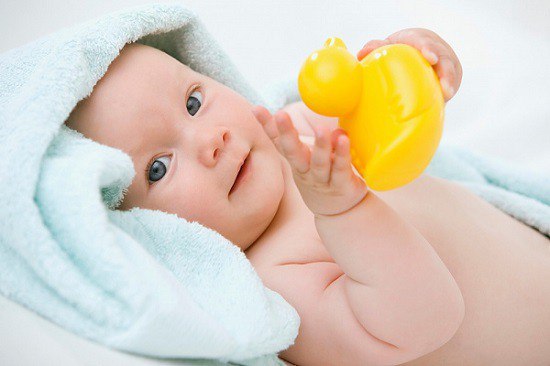
Solve the problem of hard chlorinated water. A water filter that is installed on the faucet will help you. After bathing, do not dry the child, but wrap him in a soft, light-colored towel. There is probably no need to say that the baby should have his own personal towel, which other family members should not take.
If you have pets, try to exclude any contact between pets and the baby, including his things.
If you notice that your child’s skin is still peeling, and this peeling is only getting worse, or micro-cracks have appeared on it, it is better to visit a pediatrician and show him the baby. And the doctor must find out the reason why the baby’s skin continues to peel off.
And most importantly, remember that the key to successful adaptation of baby skin to a new environment is solely in your hands - the gentle and caring hands of loving parents!
